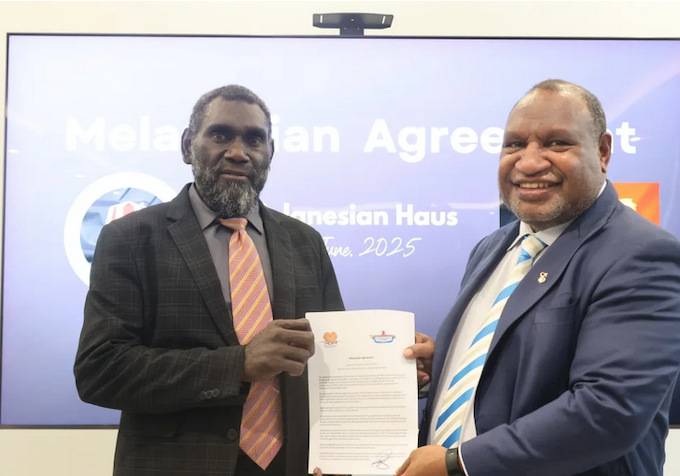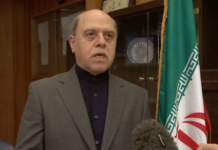
The leaders of Bougainville and Papua New Guinea have signed a deal that may bring the autonomous region’s quest for independence closer.
Called “Melanesian Agreement”, the deal was developed earlier this month in 10 days of discussion at the New Zealand army base at Burnham, near Christchurch.
Both governments have agreed that the national Parliament in PNG has a key role in the decision over the push for independence.
They recognise that the Bougainville desire for independence is legitimate, as expressed in a 2019 independence referendum result, and that this is a unique situation in PNG.
That is the agreement’s attempt to overcome pressure from other parts of PNG that are also talking about autonomy.
The parties say they are committed to maintaining a close, peaceful and enduring relationship between PNG and Bougainville.
Both sides said that to bring referendum results to the national Parliament both governments would develop a sessional order, which was a the temporary adjustment of Parliament’s rules.
Bipartisan Parliamentary Committee
They said that a Bipartisan Parliamentary Committee on Bougainville, which would provide information to MPs and the general public about the Bougainville conflict and resolution, is a vital body.
The parties said they would explore the joint creation of a Melanesian framework with agreed timelines, for a pathway forwards, that may form part of the Joint Consultations Report presented to the 11th National Parliament.
Once the Bipartisan Committee completes its work, the results of the referendum and the Joint Consultation Report would be taken to the Parliament.
The parties said they would accept the decision of the national Parliament, in the first instance, regarding the referendum results, and then commit to further consultations if needed, and this would be in an agreed timeline.
In the meantime, institutional strengthening and institutional building within Bougainville would continue.
To ensure progress is made and political commitment is sustained, the monitoring of this Melanesian Agreement could include an international component, a Parliamentary component, and the Bipartisan Parliamentary Committee, all with UN support.
This article is republished under a community partnership agreement with RNZ.












































